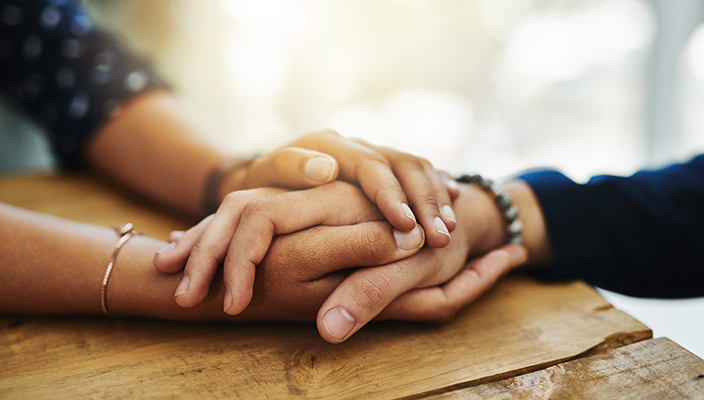
When my son, Ilan, was born, I was immensely grateful for the calls, gifts, meals, and visits from my community. Home cooked meals from friends and neighbors were relished, especially after a sleepless night and long day. And then we reached the moment when both our freezer and refrigerator were filled with the many beautiful home cooked meals. We had to ask our friends, hesitantly and very gently, to stop bringing meals because we no longer had the room.
When my father died, I appreciated calls of support and love. And, while I am confident that every person who called did so with much love and care in his or her heart, there were moments when I did not want to answer the phone, when I just wanted to be by myself or with my family.
I imagine many of us have experienced moments when we need care and help from those around us. And, I imagine that many of us feel eternally grateful for the people who were there for us, supporting us in many different ways. I also can imagine many of us may have experienced times when very well intentioned friends or community members may have reached out to us with calls, meals, or visits, when it was not the best time for us.
We all want to show our love, concern and support to our friends and neighbors in need, in the ways that will be welcome and helpful. Indeed, we know that it is a mitzvah (sacred obligation) in Judaism to visit the sick and console the bereaved. And, while we have these mitzvot, Judaism also outlines specific rules and boundaries to make sure we respect the needs and dignity of the people we are helping.
For example, the Shulchan Aruch (a code of Jewish law from the 1500s), instructs us to wait three days before visiting someone who is sick. Among the reasons given, one is to make sure we don’t scare someone into thinking they are sicker than they are. Another interpretation is that we want to make sure someone is physically and emotionally ready to accept visitors. This code is one way the rabbis helped ensure respect for the needs of the sick, making sure they only receive visitors when most appropriate.
I am reminded of a quote that a student taught me; it is a variation of Hillel’s instruction, “Don’t do unto others as you wouldn’t want them to do to you” and an improvement on the “Golden Rule.” The “Platinum Rule” says: “Treat others the way they want to be treated.”
So how do “they” want to be treated? We don’t know until we ask. Sometimes, instead of asking the person or family directly, it might be best to ask a close friend who is coordinating care. When asking how best to be helpful, it’s important to really listen to the answer – and then act on it.
Sometimes a phone call or a visit right after a loved one has died may not the best way to show our love, but a visit a month later, (when much of the attention that usually follows a death has lessened) might be much more appreciated. Likewise, a call when someone is tending to a loved one in the midst of an illness can be overwhelming and require more energy than one can muster, but a warm meal might be a welcome gift of support. With so many ways to demonstrate our love and care to friends and community members when they need it most, it’s important to be thoughtful and deliberate in efforts to do what will be most helpful, meaningful, and appreciated by them.
Rabbi Sandi Intraub is the rabbi-educator at Beth El Temple Center in Belmont, MA. She was ordained from Hebrew Union College-Jewish Institute of Religion in New York, NY, is board certified as a chaplain by Neshama: Association of Jewish Chaplains, and holds a master’s degree in teaching from Brandeis University. Sandi lives outside Boston with her wife, Stephanie Rotsky, and their two young boys.
Explore Jewish Life and Get Inspired
Subscribe for Emails

